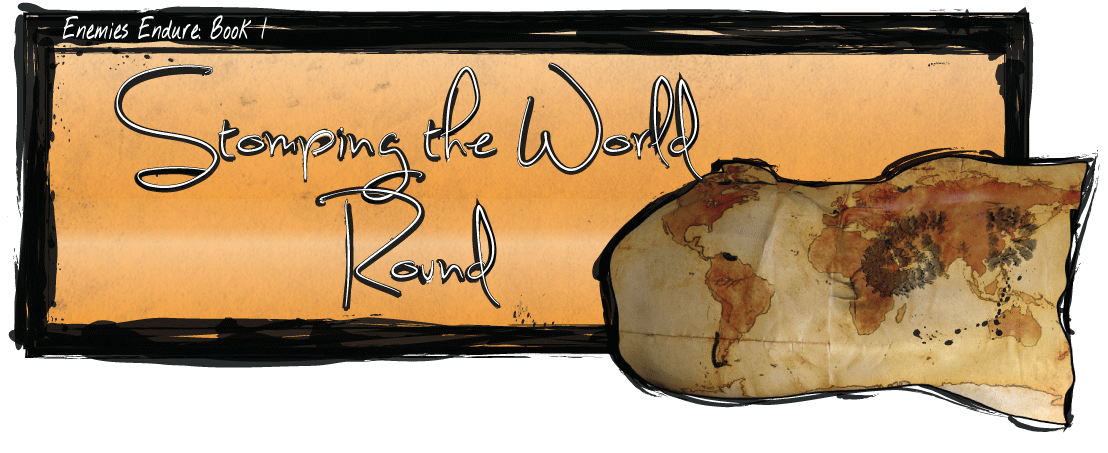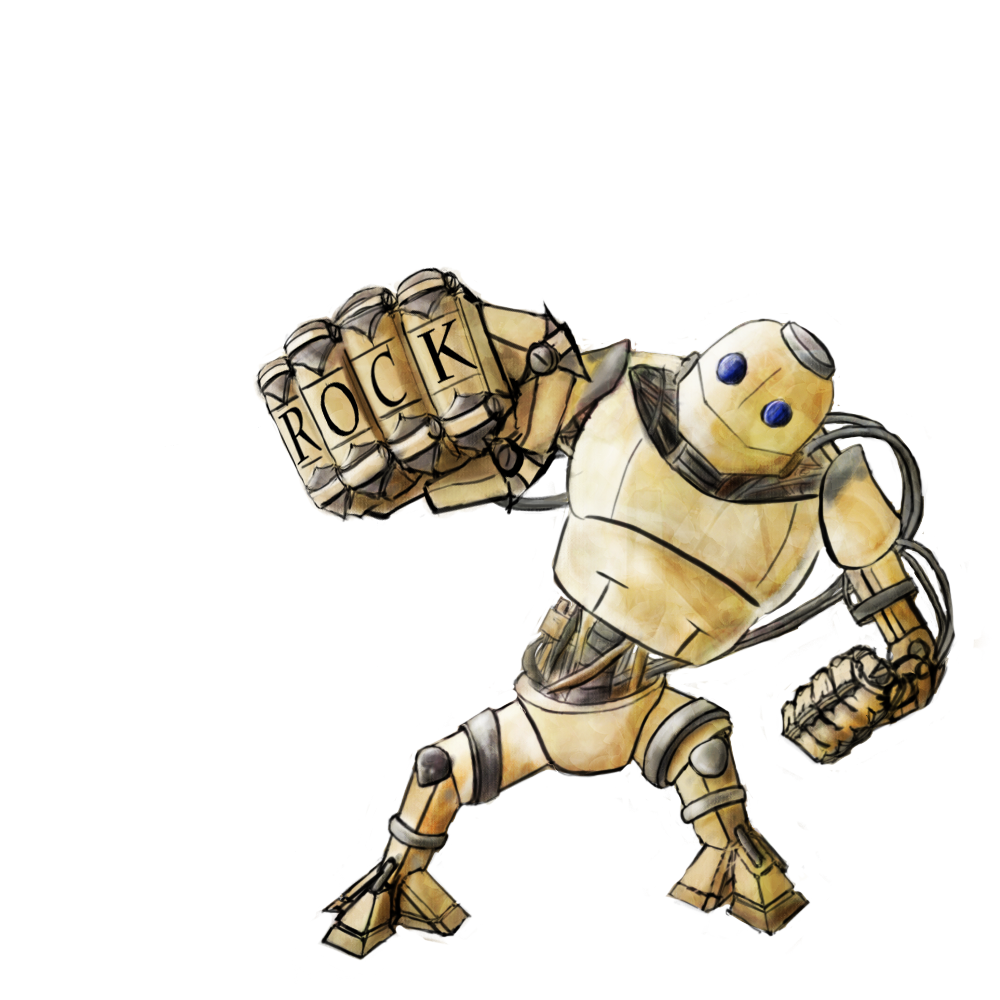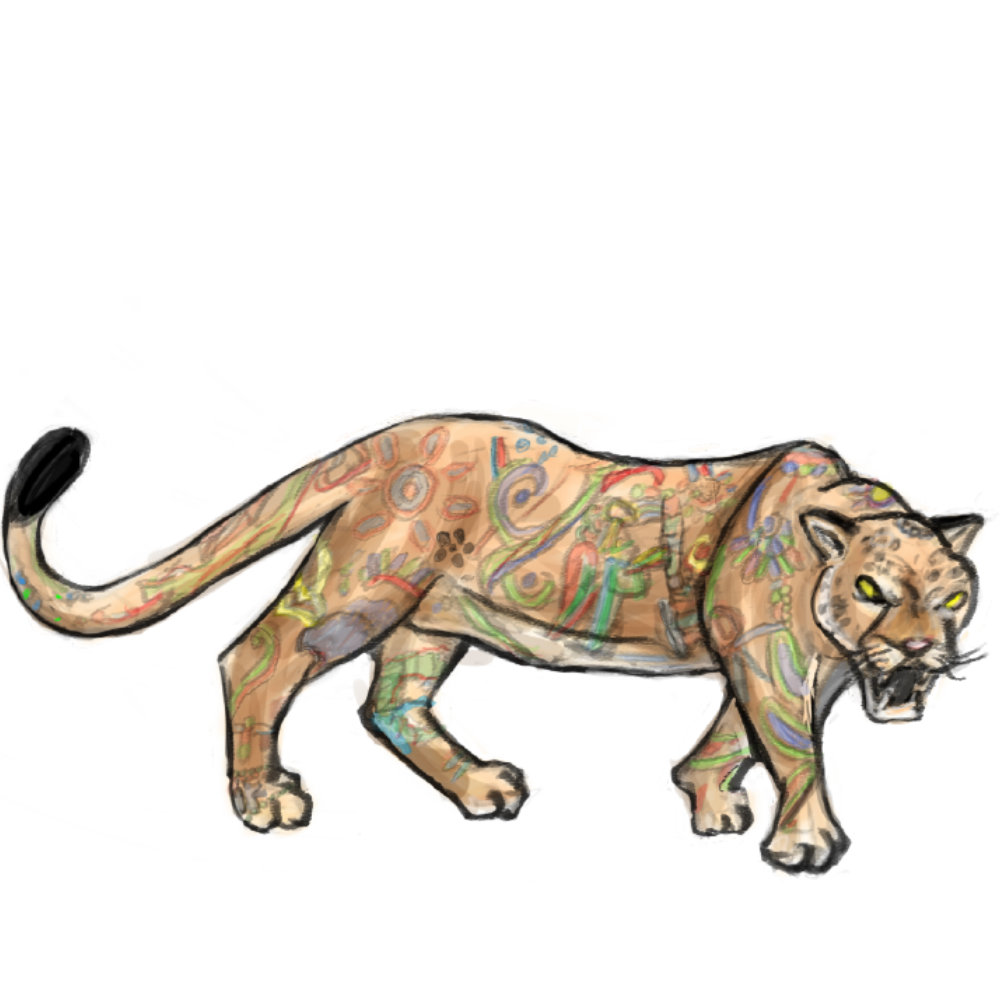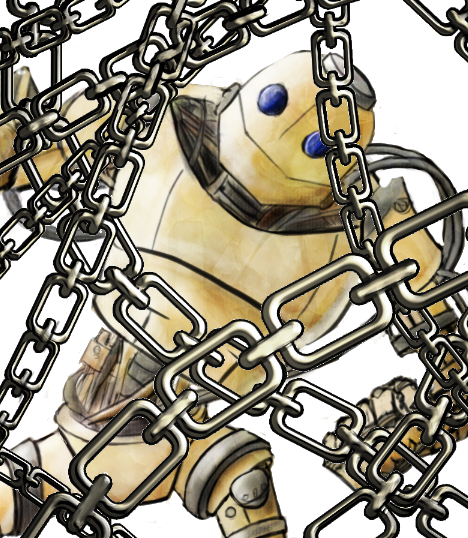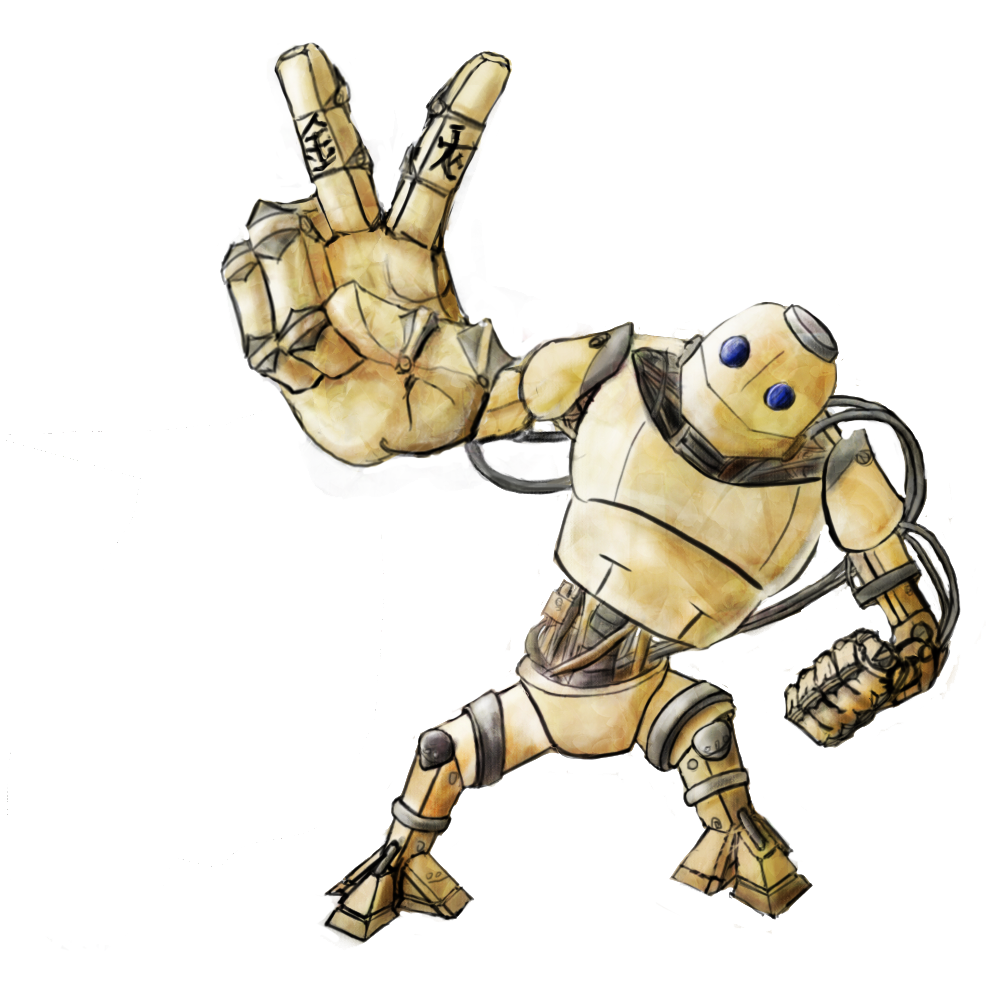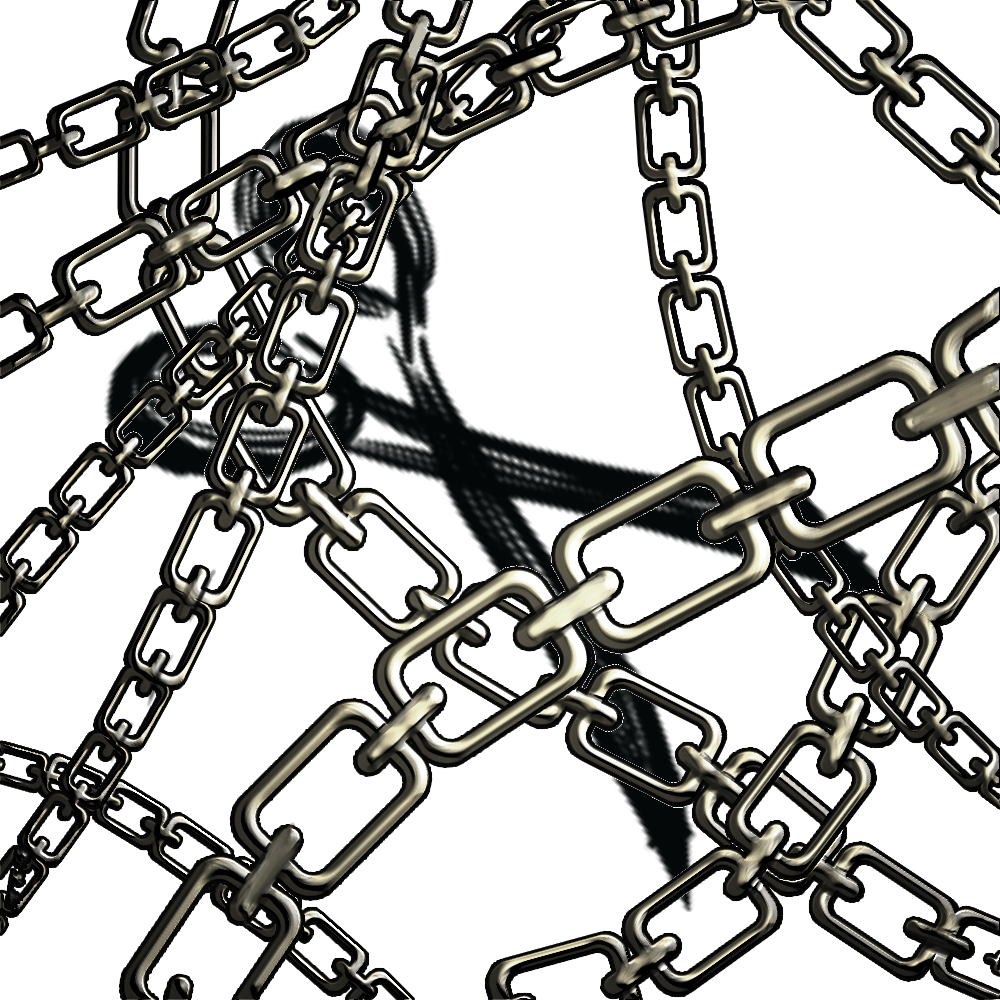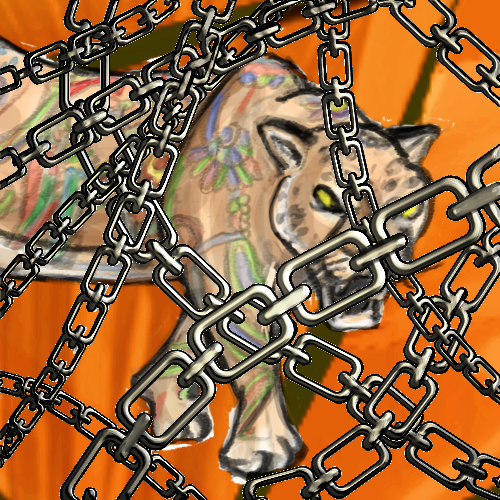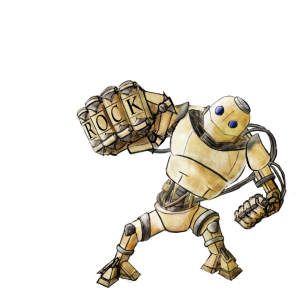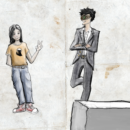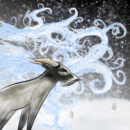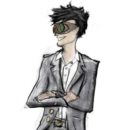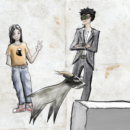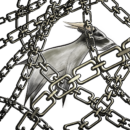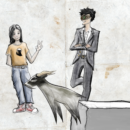– 1 –
Jane separates cans and can’ts for recycling. Then she stares in confusion at the can’ts.
“Martin,” she says. “Do we recycle can’ts?”
“Ain’ts,” he offers, helpfully. “Don’t can’ts ain’t got to.”
She looks at him as if this has not magically resolved all of her confusion, which, in fact, it has not. He makes funny faces at her. After a while, she decides, “We need a goat.”
“What?”
“A goat, Martin! A goat!”
. . .
Jane gestures over her wide collection of goat-related memorabilia. There is a figurine of a billy-goat, and also a t-shirt depicting a concert which had had a goat. Also, there is a dictionary. It has the word ‘goat’ in it. This is really the best collection of goat-related memorabilia that I can describe.
“As you know, Martin, goats are a revolutionary organic method of recycling that has recently become available in many residential areas in Gloucestershire. They’re cheap, efficient, and so easy to use that even a child can use one — which’ll come in handy, as I myself am a child! But most of all,” she says, and here her face becomes solemn and even sorrowful, “with goat-based organic recycling, you’re giving a needy, unwanted goat . . . a new home.”
“A goat is a big responsibility,” Martin wavers.
“I ate a pancake, didn’t I?”
“Aww,” he says. “My little civilization-saver.”
He traps her head and neck with one arm and he ruffles her hair. She squeals and wriggles away from him. She snarls. She snaps her teeth. Martin sticks out his tongue, puts his hands up, and backs away. “Fine, fine, I’ll get you a goat so you don’t have to separate the recycling. Geez.”
But he doesn’t!
The Goat Impersonator
Martin hires it from the Gettier goat-impersonation service.
It is a creature, presenting as a goat.
“Can you talk?” Martin asks it.
It doesn’t answer.
“Ooh! Ooh!” says Jane. She waves a hand around. Eventually Martin gives in and calls on her. She points at the creature. “Can you dance?”
The impersonator chews thoughtfully on a can’t.
“That’s a no!” says Jane.
“Goats can’t tell the difference,” says Martin. “It probably thinks that it’s bacon.”
“Hmm,” says Jane. “Can you tell the difference?” she asks.
The creature bleats. It bumps its head against Jane. It wanders off to do other recycling, or, possibly, the laundry.
. . .
Martin pays it under the table. “You’re doing a great job at being a goat,” he says.
He gives it a handful of bills. It sticks its head under the table. It devours the bills.
Everybody is very satisfied with this exchange.
“He eats money!” Jane says. She dances. “What a delightfully communist billy-goat!”
“That is a terrible dance,” Martin says. “And a terrible sentiment.”
“Bah,” says Jane.
She ruffles the head of the creature. It bumps her. She falls over. She bumps her head. Tears well up in her eyes, but she doesn’t wail! She won’t cry! Life’s too gorgeous!
They have a delightfully communist goat!
. . .
But even this joy cannot last forever. Eventually Jane catches on.
“Martin,” she says, “I cannot help noticing that you left the phone book open to ‘goat impersonators,’ with a phone number circled, and a nearby picture of our ‘goat.’”
“What an interesting observation!” Martin says.
The goat-impersonator bleats. It wanders about. It attempts to hide the evidence by eating the phone book.
This is a thing that it may not do.
. . .
They have discussions late at night, while the goat impersonator is tied up and sleeping.
After a while Jane calls the creature over and she holds its head between her hands.
She looks quite seriously into its eyes.
“I’m sorry,” she says to the creature. “We’re going to have to let you go.”
It is the end of an era and the end of an obsession. After it clicks and clacks away, down the road, over the troll bridge, and into mortal battle with the troll, Jane can’t find it in her heart to adopt an actual goat. Martin offers, but she can’t accept.
“You’re gonna have to recycle your cans now,” Martin warns her.
But she throws them at him!
Instead!
– 2 –
In Japan, a Konami executive named Mr. Matsuda tosses and turns.
He dreams.
He dreams as he has been dreaming since the seraph did not manage to blow that awful Trump.
In his dreams Mr. Matsuda is standing in a field of red and lightning: red petals, red flowers, red silks, and the argent fire of the clouds.
He is standing in a still spot of the storm.
. . .
A man is there. The man is wearing a hat. Mr. Matsuda cannot see the color of the hat.
“This world should run on love,” says the man, “and not on hate.”
The man shows Mr. Matsuda the world in the palm of his hand. It is spinning. There is red fluttering around Mr. Matsuda. He tastes of the air and it is like drinking cranberry juice: it is cold and crisp and pure in him and its flavor makes him strong.
The man in the hat reaches his other hand for Mr. Matsuda.
“The world,” he repeats, “should run on love, and not on hate; and people should know how beautiful they are.”
Mr. Matsuda takes his hand.
Softly, the man tells him:
“There’s no turning back now.”
This is how it goes in every dream. This is where he looks up, and he meets the man’s eyes, and there are flower petals and lightning flowing through the man’s eyes, and Mr. Matsuda falls into them, and he knows the man as God, and then wakes up.
Only —
This time he does not wake.
. . .
This time it is different.
This time Mr. Matsuda is falling from the sky, caught amongst the petals and the wind, and this time he sees God standing below him, and God is stepping up onto what appears to be a Dance Dance Revolution game pad, although the details differ in certain peculiar respects.
God presses the power button with his toe.
There’s no turning back now!
Symbols begin to sleet down from the sky. Mr. Matsuda does not recognize them; and yet he recognizes them. He does not know them; and yet he knows them.
. . .
Mr. Matsuda strikes the ground; he wakes up with a start; he runs to tell the Konami board of directors of the ideas within his dream.
Thus is born the Konami Thunder Dance.
Its logo is flowers and lightning. The instruction manual is insufficient. Its nature is a peculiar thing.
To learn the Thunder Dance is to reach for Heaven; it makes its players magic, and they become as gods.
